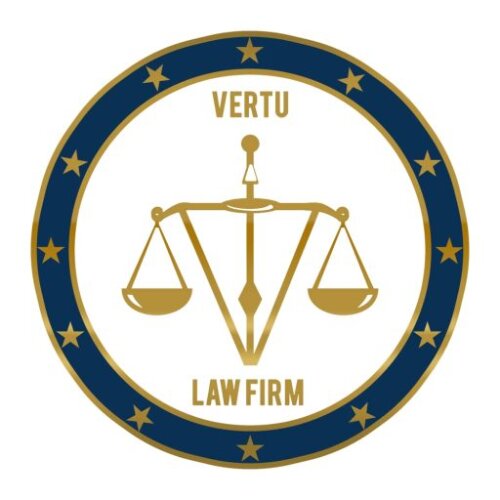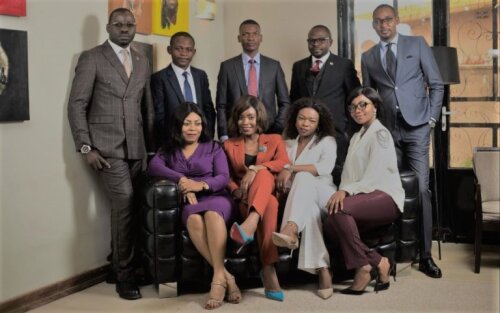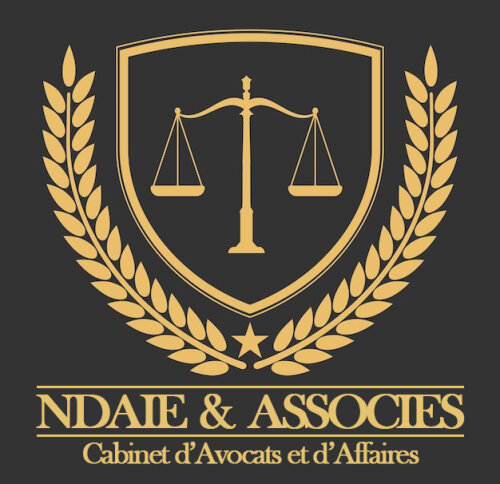Best Natural Resources Lawyers in Lubumbashi
Share your needs with us, get contacted by law firms.
Free. Takes 2 min.
List of the best lawyers in Lubumbashi, DR Congo
About Natural Resources Law in Lubumbashi, DR Congo
Lubumbashi, located in the southeastern part of the Democratic Republic of Congo (DRC), is renowned for its rich abundance of natural resources, particularly minerals such as copper and cobalt. These resources have positioned the region as an attractive hub for mining activities, playing a significant role in both the local and national economy. Natural Resources Law in Lubumbashi is a specialized field involving regulations and legal considerations regarding the exploration, extraction, and management of these valuable resources. This legal domain encompasses environmental protection, land rights, mining permits, and resource taxation, all key to ensuring sustainable and lawful exploitation.
Why You May Need a Lawyer
There are several scenarios where individuals or businesses might require legal assistance regarding natural resources in Lubumbashi:
- Obtaining Mining Permits: Navigating the complex process of acquiring and maintaining the necessary permits and licenses for mining operations.
- Land Ownership Disputes: Resolving conflicts arising from land rights issues or disputes between landowners and mining companies.
- Environmental Compliance: Ensuring adherence to environmental regulations and laws to prevent liability for environmental damages.
- Contract Negotiations: Drafting, reviewing, and negotiating contracts related to resource extraction and partnerships.
- Regulatory Challenges: Addressing issues related to compliance with local and national mining regulations.
- Tax and Royalties Disputes: Handling issues related to the payment and calculation of taxes and royalties on mined resources.
Local Laws Overview
Natural resource law in Lubumbashi is governed by a series of local and national frameworks that establish guidelines for managing and utilizing resources. Key aspects include:
- The Mining Code: It outlines regulations for mining activities, including licensing, operations, and closure procedures.
- Land Tenure Laws: These laws govern land ownership and use, critical in determining rights related to mining and resource extraction.
- Environmental Legislation: Strict environmental laws require mining companies to protect ecosystems and prevent pollution during operations.
- Labor Laws: Regulations ensure fair labor practices and safe working conditions in the mining sector.
- Community Rights and Responsibilities: Local communities have rights to inquire about and be involved in natural resource projects affecting them, often leading to community agreements ensuring benefits.
Frequently Asked Questions
What are the basic requirements for obtaining a mining permit in Lubumbashi?
To obtain a mining permit, applicants must provide a detailed project proposal, financial guarantees, proof of technical capabilities, and submit an environmental impact assessment for approval by the government.
How are land rights established for mining activities?
Land rights are established through legal ownership documents and agreements with rightful landowners. These rights must align with national land tenure laws and local customs.
What environmental protections must mining companies follow?
Mining companies are required to conduct environmental impact assessments, implement mitigation strategies, and follow guidelines to minimize ecological damage and rehabilitate mining sites post-closure.
Can communities benefit from the natural resources in their area?
Yes, communities often negotiate agreements with mining companies, ensuring benefits such as employment, infrastructure development, and compensation for land use.
What is the role of the government in regulating natural resources?
The government establishes and enforces regulations, issues permits, monitors compliance, and manages resource taxation and royalties collection.
What steps should be taken in case of a land dispute involving mining activities?
In case of a land dispute, stakeholders should seek mediation or legal counsel to resolve issues according to the country's land tenure laws and agreements.
What taxes and royalties are imposed on mining operations?
The DRC government imposes various taxes and royalties on mining activities, which are calculated based on the volume of resources extracted and production value.
Are there regulations protecting employees in the mining sector?
Yes, labor laws ensure miners have safe working conditions, fair wages, proper training, and the right to form unions.
What legal recourse is available in case of environmental damage from mining?
In cases of environmental damage, affected parties can file a lawsuit or complaints with regulatory bodies for remediation and compensation.
How can foreign investors participate in the mining sector in Lubumbashi?
Foreign investors must comply with local laws for foreign ownership, joint ventures, and partnerships, and obtain necessary permits and approvals from the government.
Additional Resources
For those interested in further information or needing assistance, the following entities can be valuable resources:
- Ministry of Mines, DRC: Provides regulatory guidance and publishes legal requirements for mining operations.
- Lubumbashi Chamber of Commerce: Offers support and information for businesses involved in natural resource sectors.
- Local Environmental NGOs: Non-governmental organizations providing insights and support on environmental issues related to mining.
- Legal Aid Organizations: Organizations providing legal assistance to individuals and communities affected by mining activities.
Next Steps
If you require legal assistance in matters relating to natural resources in Lubumbashi, consider taking the following steps:
- Consult with a specialized natural resources attorney with experience in Lubumbashi's legal landscape.
- Gather all relevant documents, including permits, contracts, and correspondence related to your legal issue.
- Reach out to local advocacy groups or legal aid organizations for support and guidance.
- Engage with relevant governmental agencies for authoritative information and advice on compliance and regulatory issues.
Lawzana helps you find the best lawyers and law firms in Lubumbashi through a curated and pre-screened list of qualified legal professionals. Our platform offers rankings and detailed profiles of attorneys and law firms, allowing you to compare based on practice areas, including Natural Resources, experience, and client feedback.
Each profile includes a description of the firm's areas of practice, client reviews, team members and partners, year of establishment, spoken languages, office locations, contact information, social media presence, and any published articles or resources. Most firms on our platform speak English and are experienced in both local and international legal matters.
Get a quote from top-rated law firms in Lubumbashi, DR Congo — quickly, securely, and without unnecessary hassle.
Disclaimer:
The information provided on this page is for general informational purposes only and does not constitute legal advice. While we strive to ensure the accuracy and relevance of the content, legal information may change over time, and interpretations of the law can vary. You should always consult with a qualified legal professional for advice specific to your situation.
We disclaim all liability for actions taken or not taken based on the content of this page. If you believe any information is incorrect or outdated, please contact us, and we will review and update it where appropriate.












